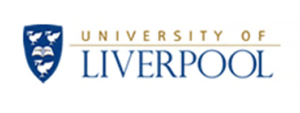 The University of Liverpool has received another £10,000 donation from Cancer Charity, Cancer Research and Genetics UK (CRGUK), further securing the long-standing partnership which has seen the CRGUK donate over £70,000 to the University to help fund vital cancer research.
The University of Liverpool has received another £10,000 donation from Cancer Charity, Cancer Research and Genetics UK (CRGUK), further securing the long-standing partnership which has seen the CRGUK donate over £70,000 to the University to help fund vital cancer research.
Nick Phillips, Director of CRGUK said “We’re delighted to help fund a new qPCR machine for the University of Liverpool, Cancer Research Centre which will help the amazing work being done there to help the fight against cancer. Its great to hear that our donation is being put towards such a cutting-edge piece of technology and hope it supports the team in their vital research for many years to come. CRGUK is very proud of our relationship with the University of Liverpool and we look forward to working with them in the future”.
The latest donation is being used to fund a quantitative Polymerase Chain Reaction machine (qPCR) which will allow the team in Liverpool to identify potentially cancerous gene cells. In the laboratory, the team will use the qPCR machine to measure the level at which a particular gene or set of genes is expressed, which allows them to measure the levels of the gene using fluorescent dyes which bind to the gene. The more the gene is expressed, the more fluorescence there will be.
Specialists in Liverpool can then can take these discoveries they make in the laboratory and apply them practically to benefit human health in a process called translational research. The aim of this type of research is to improve how we prevent, detect and treat diseases such as cancer.
Different groups within the department of molecular and clinical cancer medicine carry out translational research on several types of cancer. These include leukaemia and lymphoma (cancers of the blood), pancreatic cancer and cancers of the head and neck. Each one of these research groups examines gene expression using patient samples to better understand the mechanisms responsible for disease progression and/or how resistance to therapy develops. The current qPCR machine at the University has been a workhorse for this type of work for several years. However, this machine is now nearing the end of its useable life. Further technological advances mean newer qPCR machines are not only more sensitive, but they can measure the levels of several different fluorescent dyes at the same time. This enables the team to look at how the change in expression of one gene can affect the expression of several other genes. The purchase of a new qPCR machine will not only allow the team to continue their translational cancer research, but also enhance it. This will ensure we continue to deliver high quality translational research leading to improved overall healthcare delivery and outcomes for patients.
You can find out more about the work of the University of Liverpool, Cancer Research Centre here.